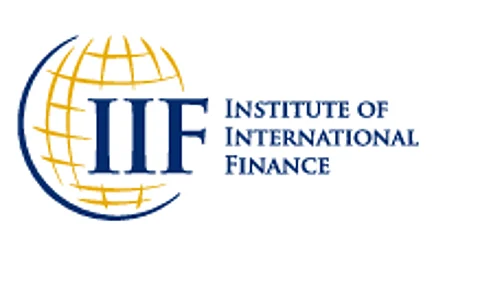
- NEWS
- the EDIT
- COMMENTARY
- BUSINESS
- LIFE
- SHOW
- ACTION
- GLOBAL GOALS
- SNAPS
- DYARYO TIRADA
- MORE

Emerging markets like the Philippines could sustain capital flows from investors despite a possible global economic slowdown of 2.7 percent this year, lower than the 3.7 percent average growth recorded before the pandemic. This was the latest analysis released Friday by the Institute of International Finance (IIF).
"Capital is not retreating, but its pace is slowing, becoming increasingly selective, and prioritizing macroeconomic resilience," the IIF said.
The Bangko Sentral ng Pilipinas (BSP) reported Tuesday that the Philippines’ net inflows of foreign direct investments (FDIs) dropped by 27.8 percent in March to $498 million, down from $689 million in the same month of 2024. The drop came amid renewed global tensions and tariff threats from U.S. President Donald Trump.
However, the IIF noted that emerging economies with strong domestic consumption will remain attractive to investors looking to avoid high inflation and weakening corporate profits in the U.S., Europe, China, and Japan.
The Philippine Statistics Authority reported that household consumption in the country grew by 5.3 percent in the first quarter of 2025, up from 4.6 percent in the same period in 2024.
This growth followed the BSP’s policy rate cuts totaling 75 basis points in 2024 — from 6.5 percent in May to 5.75 percent by December.
The country also received an A- investment-grade rating and a stable economic outlook last week from the Japan Credit Rating Agency, Ltd.
On the other hand, the IIF said China and Japan may face challenges in attracting foreign capital due to weak domestic demand and reduced government spending in critical sectors like real estate.
“China continues to attract modest flows due to domestic uncertainties, whereas emerging markets with stronger institutional frameworks are better positioned to capture investor interest,” the IIF said.
“Currently, China’s main contribution to the global economy is more disinflationary than growth-supportive,” it added.
In the U.S., the IIF said business sentiment is pessimistic, with expectations of an additional $3.3 trillion in government debt by 2034—largely due to Trump-era tax cuts.
“Inflation expectations remain elevated, and signs of weakening domestic demand have become more apparent,” it said.
Meanwhile, European household consumption is also expected to be restrained as the European Central Bank tightens monetary policy.
“Germany is moving toward more expansionary fiscal policy through increased defense and infrastructure spending. While supportive of potential growth in the longer term, this policy shift could complicate the ECB’s inflation targeting and create internal fiscal tensions within the European Union,” the IIF said.
